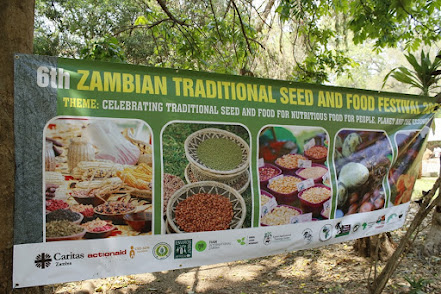REVISED FISP MUST INCORPORATE LOCAL SEEDS AND ORGANIC FERTILIZER
In view of the government's intention to transform the Farmer Input Support Program-FISP, into an agricultural business initiative, Participatory Ecological Land Use Management-PELUM country coordinator Muketoi Wamunyima has recommended the need to ensure that the revised program includes the provision of local seeds and organic fertilisers to farmers.
Mr Wamunyima says in its current form, FISP is not working hence he welcomes plans to redesign it and is looking forward to seeing what will be contained in the new program.
Mr Wamunyima believes that if the sector is to progress farmers must be given the choice of seeds they want to use in their fields, be it local or hybrid seeds.
He feels that farmers have for a long time been forced to practise mono-cropping by only growing maize which he said has not helped the sector to grow and has since stressed the need to ensure that crop diversification is fully implemented.
"We have started time and again that FISP is not working and we really need to be proactive and redesign the whole program and things like including local seeds, you know providing organic fertilisers, are things we need to see in FISP because that is more holistic in approach. People want to have for example organic fertiliser [but] they can't find it because the government has not provided it in FISP," he says.
Meanwhile, Mr Wamunyima has lamented that at present local seeds can not be sold on the market because the law demanded that seeds must be certified.
He said if the local seeds have not been certified, they can not be placed on the market.
He proposed a parallel system that can be used to certify local seeds in order to make them available on the market.
"Currently people won't sell the [local] seed. Just a few weeks ago in Kenya, a law that is similar to us(Zambia), they have criminalised the sale of local seeds and that is the law now. So people won't be able to sell local seeds and that will be eventually a similar picture in Zambia if we don't advocate for the sale of the local seeds on the Zambian market," he said.
Further Mr Wamunyima said people need to be sensitised on the availability of the country's gene bank and for the government to build capacity in local communities on the best way to propagate and preserve the seed without it being destroyed or infected by diseases.


Comments
Post a Comment